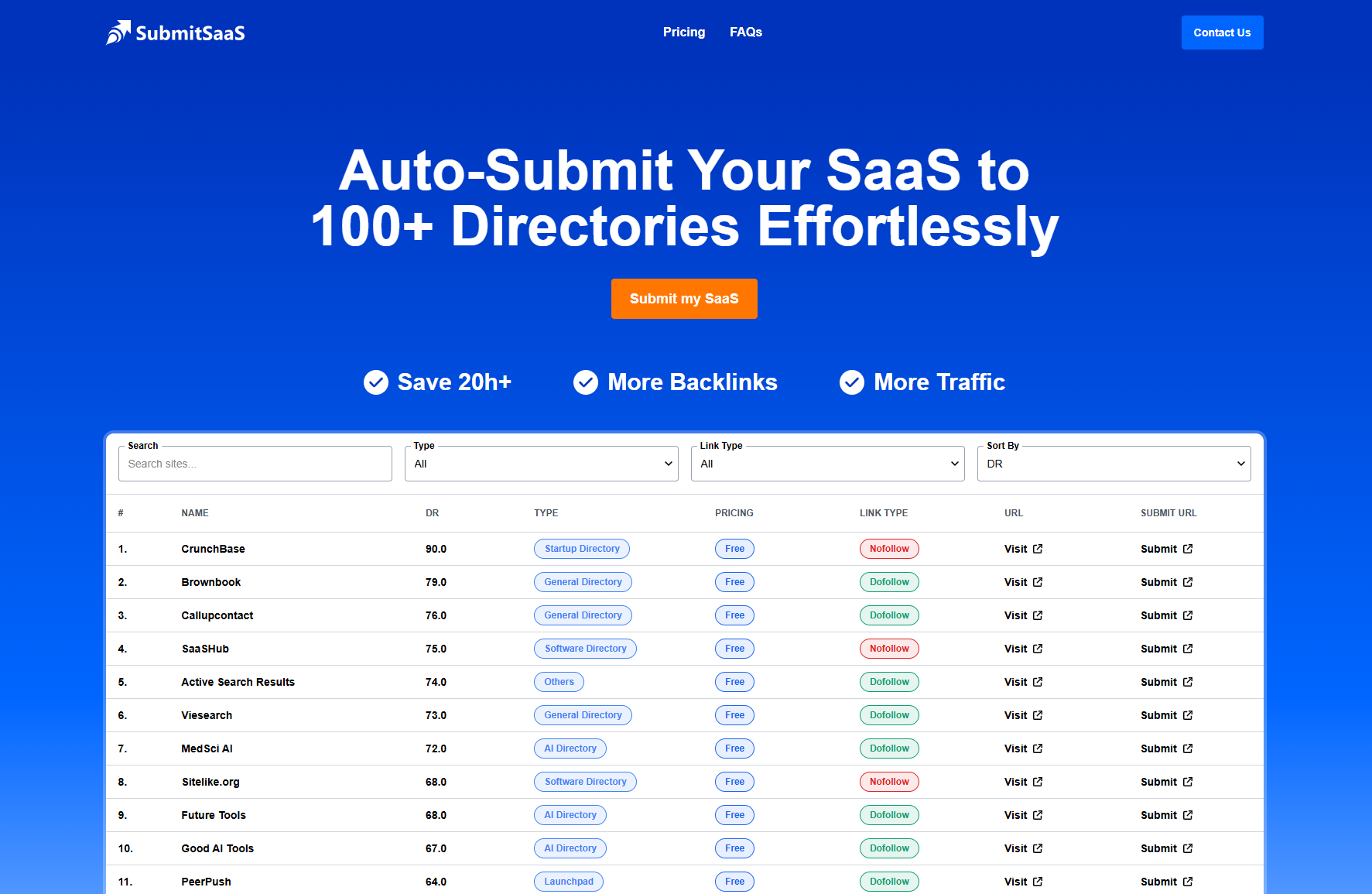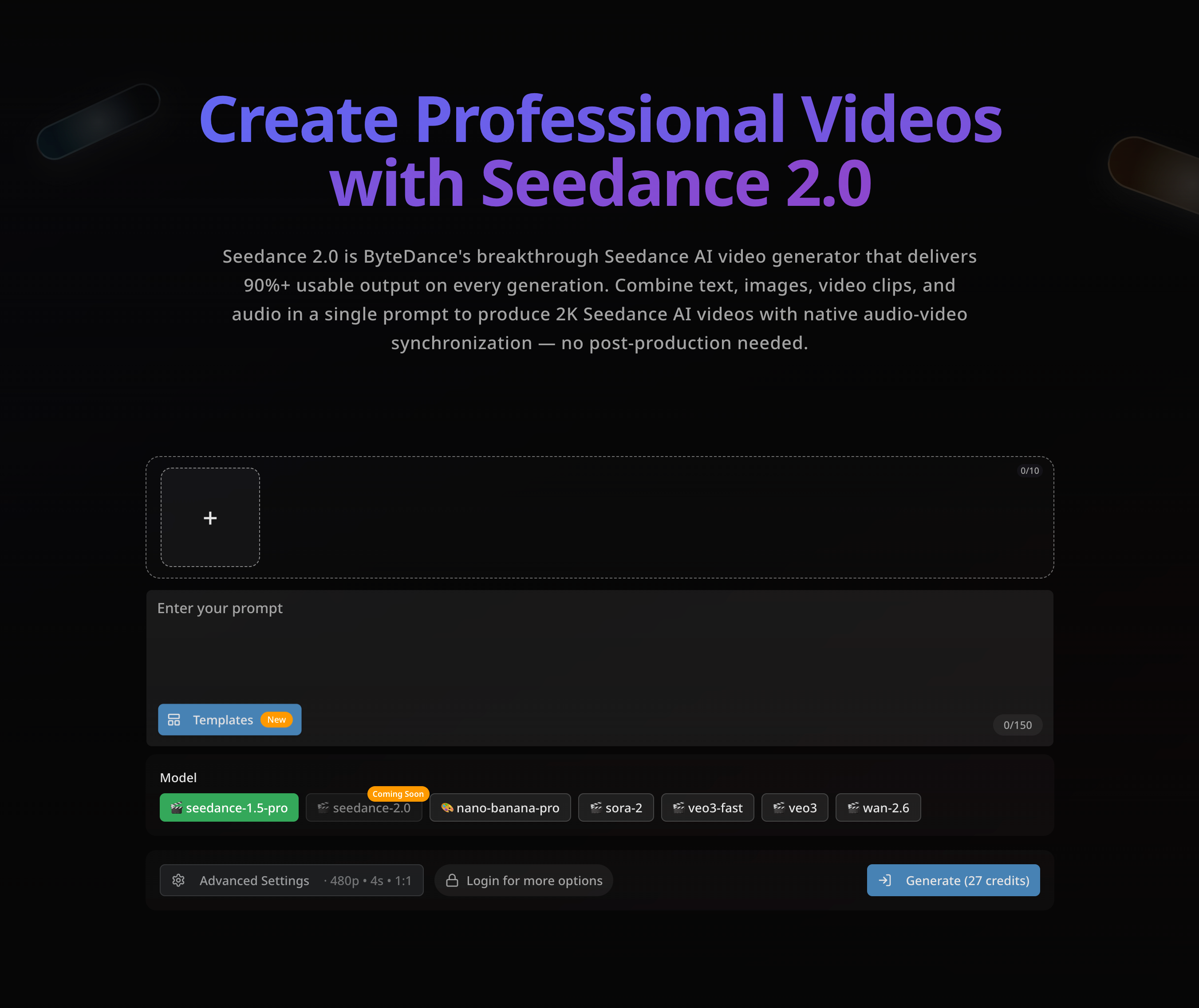Today's Launches

Explore the Interactive Circle of Fifths.

Increase your SaaS visibility by submitting to 100+ directories. Save time, gain high-quality backlinks, and grow your reach with minimal effort.

Security awareness training where employees learn by getting phished, not by watching a video about it. Interactive 3D simulations drop people into realistic cyberattack scenarios. They make decisions, see the consequences, and actually remember what to do next time. SCORM-ready for any LMS or standalone cloud deployment. Built by the Kontra AppSec team.

Feynn: AI-Powered Strategic Intelligence for LeadersFeynn is a cutting-edge SaaS platform designed to empower leaders and teams with AI-driven strategic intelligence. It transforms complex data into structured research, enabling robust scenario analysis and delivering decision-grade insights essential for navigating today's dynamic business landscape.This platform is ideal for executives, strategists, and business development teams seeking to enhance their strategic planning, market foresight, and competitive analysis capabilities through advanced artificial intelligence.Key Features AI-Powered Strategic Intelligence: Leverage advanced AI to uncover critical trends and opportunities. Structured Research Capabilities: Organize and synthesize vast information into actionable research reports. Comprehensive Scenario Analysis: Model various future outcomes to prepare for challenges and capitalize on opportunities. Decision-Grade Insights: Receive clear, data-backed recommendations for critical business decisions. Collaborative Workflows: Facilitate seamless teamwork and knowledge sharing among strategic teams. Data-Driven Foresight: Proactively identify market shifts and competitive threats with predictive analytics.Use CasesFeynn is invaluable for strategic planning, allowing organizations to integrate AI-driven insights into their long-term vision. It helps leaders identify market disruptions, assess their impact, and formulate resilient strategies. For instance, a company launching a new product can use Feynn to analyze market receptiveness, competitive landscapes, and regulatory hurdles, ensuring a more informed entry.The platform also excels in competitive intelligence and market analysis. Businesses can monitor competitor strategies, track industry trends, and identify emerging technologies with precision. This enables proactive adjustments to business models, maintaining a competitive edge. Feynn further supports risk assessment, helping teams model adverse scenarios and develop mitigation plans.Pricing InformationFeynn operates on a paid subscription model, offering various tiers tailored to different team sizes and organizational requirements. Specific pricing details are typically available upon request, often involving custom quotes. While a free trial isn't explicitly mentioned, interested parties are encouraged to contact Feynn directly for a demonstration and personalized plan.User Experience and SupportThe platform features a professional and intuitive user interface, making complex strategic analysis accessible. Streamlined dashboards and reporting tools simplify data visualization and insight extraction. Feynn is expected to provide comprehensive documentation, tutorials, and dedicated customer support to assist users in maximizing the platform's potential.Technical DetailsFeynn likely leverages state-of-the-art artificial intelligence and machine learning frameworks. Built as a cloud-native SaaS solution, it ensures scalability, high availability, and secure data processing. The architecture involves robust data pipelines, advanced natural language processing (NLP) for unstructured data, and sophisticated data visualization libraries.Pros and Cons Pros: Delivers accurate, AI-driven strategic insights. Streamlines complex research and analysis. Enhances decision-making with data-backed foresight. Improves organizational agility and competitive advantage. Cons: May have a learning curve for advanced features. Pricing could be a significant investment. Requires quality data input for optimal results. Customization options might be limited. ConclusionFeynn stands out as a powerful AI-powered platform for strategic intelligence, offering leaders and teams the tools to make informed, forward-looking decisions. By transforming raw data into actionable insights, it empowers businesses to navigate uncertainty and achieve sustainable growth. Explore Feynn today to revolutionize your strategic planning and gain a decisive edge.

Explore verified properties, new projects, and resale homes for sale across India. Get professional brokers to show you the best properties.

Seedance 2.0: The Breakthrough AI Video GeneratorSeedance 2.0, developed by ByteDance, is a cutting-edge AI video generator designed to revolutionize content creation. It boasts an industry-leading 90%+ usable output rate, allowing users to effortlessly combine text, images, video clips, and audio in a single prompt to produce stunning 2K AI videos with native audio-video synchronization, eliminating the need for post-production.This powerful SaaS solution caters to a wide range of professionals and creators, including solo artists, enterprise teams, video production directors, social media managers, indie filmmakers, e-commerce sellers, and digital marketing agencies, all seeking to streamline and enhance their video production workflows.Key Features90%+ Usable Output Rate: Consistently delivers production-ready videos, cutting costs by up to 80% compared to previous AI tools.Native Audio-Video Synchronization: Generates audio and video jointly, ensuring precise lip-sync, context-aware ambient sounds, and adaptive background music.Quad-Modal Creative Input: Accepts up to 12 files simultaneously, including text prompts, 9 images, 3 video clips, and 3 audio tracks, for comprehensive creative control.2K Native Resolution Output: Produces sharp, high-quality video at 2K resolution, suitable for social media, advertising, and commercial distribution.Auto Storyboarding & Smart Camera System: Automatically breaks stories into professionally framed shots and generates dynamic camera movements, simplifying complex video direction.Multi-Shot Narrative Consistency: Maintains character appearance, clothing, and features across multiple shots, crucial for short films and series content.Use CasesSeedance 2.0 addresses the biggest pain points in AI video creation, such as unpredictable output quality and fragmented production workflows. It empowers users to transform still images into cinematic video clips with stunning motion, visualize any text prompt into dynamic scenes, and create professional-grade short films or branded storytelling content with unparalleled consistency.From generating product demo videos for e-commerce sellers to producing engaging educational content and rapid prototyping for UX motion designers, Seedance 2.0 significantly accelerates content creation. It enables ad campaign managers to test 20 concepts in the time it once took for one, and corporate video producers to create internal communications and training videos in-house at a fraction of the traditional cost.Pricing InformationSeedance 2.0 offers a flexible pricing structure with monthly subscription plans: Basic ($11.99/month), Pro ($23.99/month), Ultra ($63.99/month), and Max ($159.99/month), each providing varying credit allowances and support levels. Additionally, users can purchase credit packages (Trial, Basic, Standard, Premium) that never expire, offering further flexibility for their video generation needs.User Experience and SupportThe platform is designed for ease of use, featuring an intuitive interface that allows users to combine diverse inputs into a single prompt. Advanced capabilities like auto storyboarding and a smart camera system simplify complex video production tasks. Support varies by plan, ranging from basic customer support to priority responses within 4 hours for Max plan users, ensuring assistance is available when needed.Technical DetailsWhile specific programming languages or frameworks are not detailed, Seedance 2.0 leverages advanced AI models to process quad-modal inputs and generate high-resolution video with native audio-video synchronization, indicating sophisticated machine learning and video processing technologies at its core.Pros and ConsPros: Exceptional 90%+ usable output rate; seamless native audio-video synchronization; versatile quad-modal input; superior 2K resolution; robust multi-shot consistency; automated storyboarding and camera control; enterprise API for scalability; significant cost and time savings.Cons: No explicit free tier for subscriptions (though a trial credit package exists); advanced features might require some learning; specific technical stack not disclosed.ConclusionSeedance 2.0 stands out as a leading AI video generator, offering unparalleled quality, efficiency, and creative control. Its ability to deliver production-ready 2K videos with perfect audio-video sync and multi-shot consistency makes it an indispensable tool for anyone looking to produce professional video content at scale. Explore Seedance 2.0 today to transform your video creation process and unlock new creative possibilities.

AI-powered platform that transforms resumes into beautiful, searchable portfolio websites. Protects contact info from spam, enables semantic search discovery, and provides analytics on profile views.